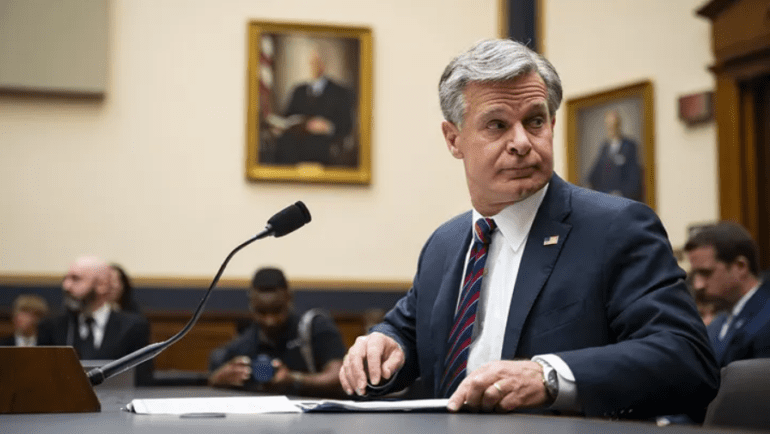TL;DR:
- FBI and MI5 chiefs express concerns over terrorists’ use of artificial intelligence.
- AI technology adds unprecedented sophistication to terrorist activities.
- The five Eyes alliance conference focuses on addressing evolving intelligence threats.
- Collaboration with private sector experts is crucial to counter AI-related risks.
- Generative AI’s limitless potential raises identity impersonation and deepfake concerns.
Main AI News:
In a recent gathering of intelligence leaders from the United States, United Kingdom, Canada, Australia, and New Zealand, FBI Director Christopher Wray delivered a sobering message: the rise of artificial intelligence (AI) poses an unprecedented threat in the hands of terrorists. During the Five Eyes alliance conference held in California, Wray emphasized that the adoption of AI technology by malicious actors adds an alarming level of sophistication to their capabilities.
The conference, aimed at finding innovative responses to evolving intelligence threats, spotlighted the pivotal role of emerging technologies in both economic prosperity and national security. Director Wray articulated the FBI’s unwavering commitment to safeguarding these technologies from theft and exploitation. He stressed the importance of collaboration with Five Eyes partners and industry stakeholders to counteract the misuse of AI for nefarious purposes.
Director General Ken McCallum of Britain’s MI5 echoed these concerns, emphasizing the need for a global, multi-pronged approach. “It’s one of those issues where no one has a monopoly of wisdom and trying to have a different form of public-private partnership and, crucially, international partnerships,” McCallum said during the conference.
AI has already demonstrated its potential in aiding terrorists. FBI Director Wray cited instances of AI being used to obscure alarming online searches or exploit vulnerabilities in AI-driven security infrastructure. He warned that the sophistication of AI-generated deepfakes could amplify existing strategies employed by hostile nations, presenting an unprecedented challenge.
In response to these evolving threats, intelligence agencies are recognizing the imperative of collaboration with private-sector experts. Dr. Condoleezza Rice facilitated a fireside chat during the conference, bringing together intelligence leaders, including McCallum and Wray, to stress the importance of cooperation. They acknowledged the pivotal role that private companies can play in addressing these emerging challenges.
Daveed Gartenstein-Ross, CEO of Valens Global and associate fellow at the International Centre for Counter-Terrorism, emphasized the benefits of public-private partnerships. He highlighted how companies with a global presence have increasingly cooperated with local authorities and law enforcement to combat threats. Gartenstein-Ross noted that many AI platform developers are already in dialogue with the U.S. government, recognizing the shared responsibility in mitigating potential risks.
The concerns surrounding generative AI stem from its boundless potential. Gartenstein-Ross pointed out that AI’s capabilities are limited only by human creativity. He cited examples such as identity impersonation, which can replicate a person’s writing style or voice using audio files, as well as the creation of fake images for deceptive purposes.
Conclusion:
The rising concern among intelligence agencies about terrorists harnessing the power of artificial intelligence underscores the need for proactive collaboration with private sector experts. The market for AI-driven security solutions and technologies is likely to witness heightened demand as the intelligence community seeks innovative ways to combat evolving threats in this digital age.

